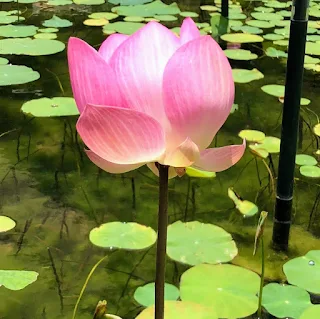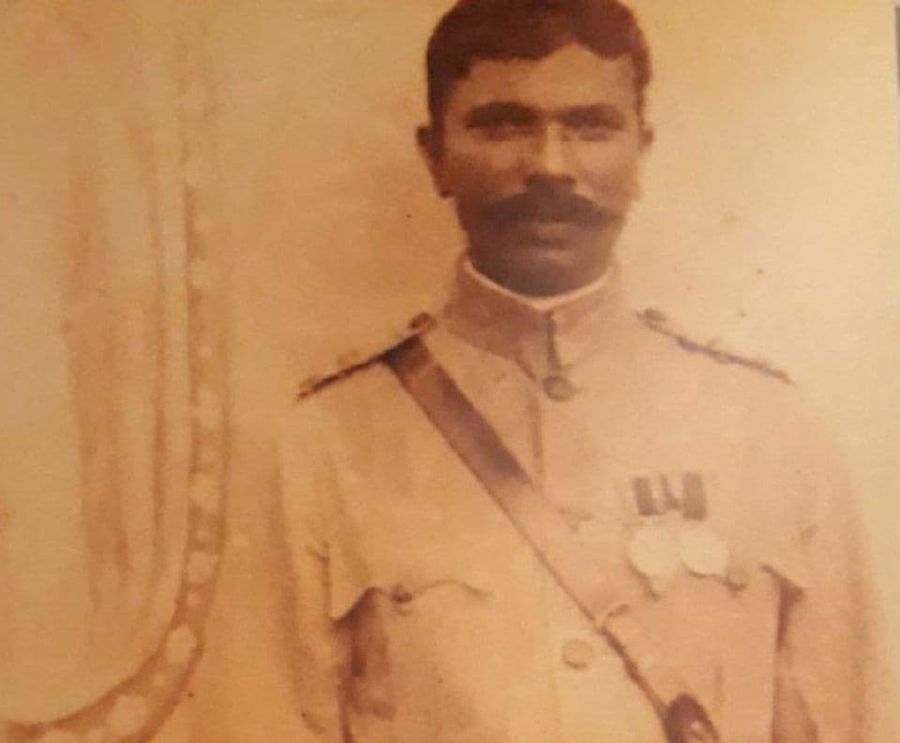KUALA LUMPUR: "No one is a man, until he has been a soldier."
This is one adage the Dass family firmly believes in - for four of them have collectively clocked an impressive 110 years of service for the nation.
Their foray with the armed forces began with their patriarch - Flying Officer (Rtd) David Samuel Dass who had served with Britain's Royal Air Force (RAF) during World War I .
Then, David's son Warrant Officer II (Rtd) William David Dass continued the family's tradition with the Malaysian Army.
In later years, William's sons Maritime First-Admiral (Rtd) Christopher Ravindran Dass and Brigadier-General Dr Alexander Amaradran Dass donned the uniform.
Dr Alexander, who is due to retire on May 4 next year upon reaching 60, was promoted to a 'one-star' general recently and is serving as the maxillofacial surgeon and department head at the 94th Armed Forces Hospital at Terendak Camp in Malacca.

He is just among a handful of medical specialists in the discipline with the Armed Forces.
Dr Alexander told The New Straits Times that it was the wishes of his grandfather David to have at least one 'son' in each generation of their family, to serve with the armed forces.
"There was no force and we took it upon ourselves to put our foot forward, when the nation really needed able-bodied youths during the difficult and trying years," said Dr Alexander, who hopes his nephews or grandchildren would continue with the tradition.
Recalling David's service, Dr Alexander said his grandfather had served with the RAF's 63rd Squadron as an officer from 1916 to 1920.
"He saw action in the Mediterranean and against the Turkish Army in Mesopotamia (Iraq).
"His foray earned him the British WW I 'Victory Medal' and a 'British War Medal'.
"David opted out of service after his stint with the RAF and went into business, before moving to Malaya in 1930," said Dr Alexander, who is married to Khasturi Bhai Muniswaran, a former CIMB banking executive.
William had joined the Police Volunteer Reserve as a 16-year-old.
In 1954, he became a Junior Civil Liaison Officer (JCLO) and was posted with the First battalion Royal Malay Regiment based at the Lintang Camp in Sungai Siput, Perak.
"He was tasked with gathering information on the movement of the Communist Party of Malaya's (CPM) movement in the area.
"Dad often related to me his encounters with the CPM terrorists deep in the jungles of Malaya.
"Among his tales were how he had to sleep with the bodies of his dead comrades, until they were safely retrieved to be given a burial with honours," said Dr Alexander.
In 1955, William was among those from the Royal Armour Regiment who were deployed during the 'Baling Talks' in Kedah, between the Malayan government and CPM leader Chin Peng.
During the First Emergency period of 1948-1960, William was tasked with tracking down and monitoring the movements of another CPM leader, C.T. Perumal.
In 1962, William was chosen to serve under the United Nations peace-keeping mission in Bukavu, Congo.
In 1970, William also served as the chief staff assistant to the Malaysian defence adviser at the high commission in London, Britain.
He retired as a Warrant Officer II, after 29 years of service in 1980.
Dr Alexander said his elder brother Christopher had initially joined the Royal Malaysian Navy in 1980 and rose to become a commander.

"In 2005, he was among the pioneer batch of officers and men in the newly established Malaysian Maritime Enforcement Agency (MMEA), starting off as a captain.
"He went on to serve as commandant of the MMEA Academy in Kuantan, Pahang before retiring in 2019 after almost 40 years of service," said Dr Alexander, who had completed Form Five at the Penang Free School in 1979.
A few years later, he earned a Public Service Department scholarship to pursue a bachelor of dental surgery degree at the University of Punjab in Lahore, Pakistan.
He was cited on the Dean's list and was the first Malaysian to win a gold medal there, for his excellent results upon graduation in 1991.
Upon his return, Dr Alexander was seconded to the Ministry of Health and served at the Queen Elizabeth Hospital in Kota Kinabalu, Sabah for about two years.
"In 1993, I chanced upon the opportunity to serve with the Armed Forces Royal Medical Corps as a dental officer.
"I accepted a commission as a captain and was duly posted to the 2nd Battalion Royal Ranger Regiment at the Tambun Camp in Ipoh, Perak," he said.
Five years later, he attended a staff officer's course in Port Dickson, Negri Sembilan and won the commandant's prize for his thesis on total quality management.
"In 2000, I was offered to purse a four-year post-graduate degree in oral maxillofacial surgery at University Malaya, Kuala Lumpur.
"In late 2005, I was the facial trauma surgeon with the Armed Forces team despatched on a humanitarian mission to the earthquake mission in Battagram, Pakistan," he said.
In 2009, he was the Malaysian Medical Commander (MMU-7) with the United Nations Mission for the Referendum in Western Sahara (Minurso), tasked with assisting and treating military observers and land mine victims.
"Part of my job entailed me to undergo an airborne course to complete the compulsory eight static-fall parachute jumps off an aeroplane.
"With Terendak Camp as the home of the Army's 10th Para Brigade, my 14 years there helped me to better understand the stress and strain of the soldiers," said Dr Alexander, who earned the unique maroon beret worn by elite commandos who are a key element of the Armed Forces' Rapid Deployment Force.

He added that to earn the maroon beret, he had to undergo a myriad of strenuous exercises and trainings for about two solid months.
"These included the 'Pegasus' survival exercises which were tough ordeals both in the jungles and at sea.
"My first airborne jump over 2,000 feet in 2007 was truly an exhilarating experience, as I managed to avoid hitting the ground like a sack of potatoes," he said.
Dr Alexander was also exposed to joint military exercises with Indonesia, Australia and the United States' armed forces, apart from the regular combat exercises with the 10th Para Brigade.
"Having the opportunity to train with foreign armies was always a unique experience as it allowed me to share and exchange knowledge with them.
"It also certainly strengthened our camaraderie," said Dr Alexander, who has special interests in dental implantology, laser and facial trauma.
Owing to his vast experience, Dr Alexander was roped in to initiate diploma courses for dental staff assistants at the Armed Forces Medical Institute in Malacca, as well as ensuring that the 94th Terendak Hospital was of an international-class medical facility to adequately for soldiers.
He paid tribute to the gallant officers and men of the Armed Forces who toiled to safeguard the sovereignty of the nation.
To improve his communication and leadership skills, Dr Alexander is actively involved in Toastmasters International.
"I owe an incredible debt of gratitude to the Armed Forces leadership for their confidence and trust in me to fulfil my responsibilities as a doctor and an officer.
"I am privileged and fortunate enough to be given an opportunity to further my studies and career. I have no regrets donning the uniform as it had provided abundant opportunities and possibilities to advance myself. I realise that this country of ours is a land of prosperity and generosity, of strength and unity, of opportunity and work," he said.















